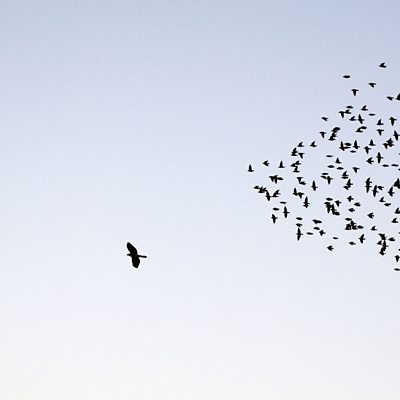Episode details

Available for over a year
A study recently published by the National Academy of Sciences looked at patterns of brain activity in creative people and isolated a number of characteristic features, including the ability to allow the mind to wander. Now I’m not entirely sure we needed a brain scanner to tell us this. The connection between the ability to let our minds wander and creativity is surely obvious to anyone who has watched a child play. My one year old does things with coloured bricks that wouldn’t occur to most of us adults. “Every child is an artist,” explained Picasso “the problem is staying an artist when you grow up.” My own particular bugbear is that we typically squeeze the creativity out of our children by constantly bombarding them with entertainment, digital and otherwise, as if boredom is something so terrifying that it must be fended off at all costs. Because surely, when it comes to creativity, boredom is our friend. Or at least, the preparedness to be bored opens up a space and a time for the mind to wander about in, to make unusual sideways connections or casually to experiment with ideas that lead us into unknown places. Which is why I take a certain sort of perverse pleasure in the thought that churches may be some of the last bastions of boredom in our society. Yes, there are those religious establishments that believe it their job to entertain the congregation. But personally, I have little sympathy with any of that. To my mind, churches should be places where silence and routine allow the mind to wander freely, and where we can ruminate on an idea or on something that’s bothering us, perhaps placing it alongside a thought from scripture or something from the liturgy. In my experience it’s in the corridors of these free floating ruminations that we are sometimes surprised by a connection or a thought that religious people would recognise as something to do with God. I know this sounds like a woolly and terribly circuitous construction but prayer – to give it a name - is often a necessarily circuitous and associative business. There is a wonderful poem by the Welsh priest RS Thomas called Sea Watching. He speaks of years of looking out over the vast grey waters of the Welsh coast, not quite knowing what he is looking for, or of what rare bird might circle into view. There is something about this image that describes perfectly the sort of groundwork that is required for both creativity and prayer. Both need time and space and lots of it. And sometimes it is so boring. And nothing happens. And we twitch and we fidget and complain how useless the whole thing is. Then, on other days, a rare bird does fly into view. And we haven’t seen anything like it before. And the world becomes a different place. And the whole thing feels worth it once again.
Programme Website